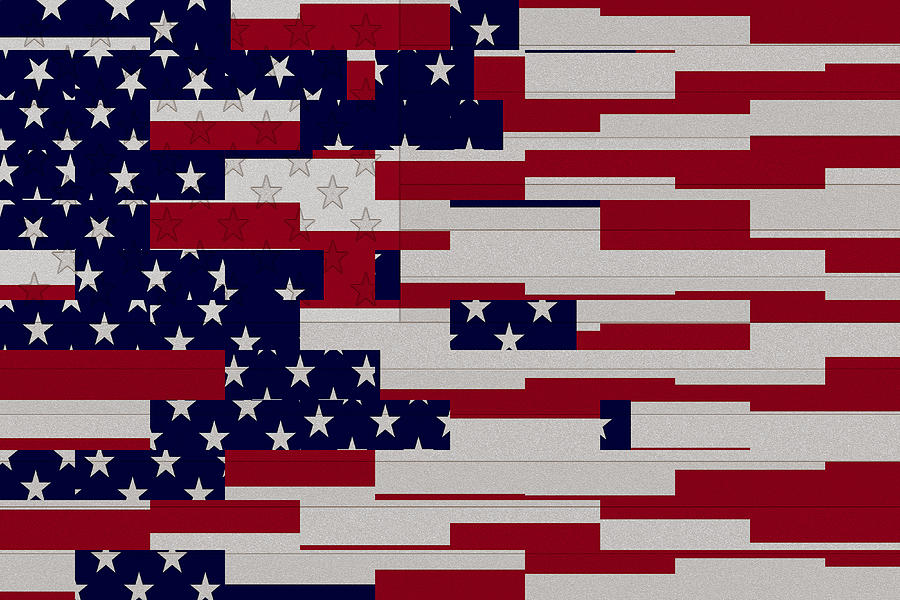No Hollywood screenwriter could have concocted the real-life political perfect storm wreaking havoc on 2020 — and the year is not finished with us yet. With an unprecedented presidential election looming over us like a slow-mo tsunami, and the possibility of no real resolution in the foreseeable future, I’d like to offer an alternative to our current un-United States of disarray.
Bogus ballots, a beleaguered Postal Service, recounts and re-recounts? No need to fret over such outdated and dysfunctional procedurals. Hell, for a moment, let’s even disregard the current candidates. With state-of-the-art animatronic and holographic technology, a little spliced DNA wizardry, and a smidgen of CGI, the president our country collectively deserves is literally at our fingertips.
My fellow Americans, I’d like to nominate our first virtual president.
And where better to look for a strong leader than the true epicenter of our country’s collective fantasy factory ― Hollywood? Don’t snicker. The studios have the technology, and God knows they could use the work in the aftermath of the pandemic that threatens to make them a cultural anachronism. All we need is the right software, a little polish from special-effects wizards, and voilà! ― the first digitally created chief executive.
Here’s a partial wish list of potential presidential attributes, all culled from some of Hollywood’s most memorable chief executives.
Hands-On Leadership
First and foremost, we need a chief executive who can kick some serious terrorist ass. In Wolfgang Petersen’s 1997 action thriller Air Force One, Harrison Ford transformed the Leader of the Free World into an action hero. As President James Marshall, the ever-resourceful Ford tosses diplomacy (and a few generic bad guys from central casting) out the window of his White-House-in-the-Sky, saving both his family and, as the cherry on the cake, the country. Bonus points: He had the good sense to have Glenn Close on the ground as his VP ― a savvy way to court the female vote.
Bill Pullman made for a young, virile Commander in Chief battling a horde of invading aliens in his own jet fighter in the patriotic blockbuster Independence Day (1996). Pullman’s President Thomas Whitmore acts decisive ― “Nuke ’em”, he barks ― but stops short of personally annihilating the entire fleet of interplanetary intruders, leaving himself a seat at the negotiating table when the defeated aliens invariably apply for foreign aid.
Good Phone Skills
An effective leader should be able to keep his head when the going gets tough. Henry Fonda’s nameless U.S. President in 1964’s suspenseful Fail Safe does a masterful job of maintaining his cool when a runaway American bomber is about to drop an nuke on Russia. Fonda’s hand-wringing phone conversation with the Soviet premier is a real deal-maker ― even if America does end up forfeiting New York in the bargain. (Insert your own punchline here.)
In Stanley Kubrick’s iconic Dr. Strangelove (1964), President Merkin Muffley (Peter Sellers) tries his best to be diplomatic in the midst of a similar crisis, employing impeccable long-distance phone etiquette on the hotline with Soviet leader Dmitri Kissov: “Dmitri, you know how we’ve always talked about the possibility of something going wrong with the bomb? Well now, what happened is … one of our base commanders, he had a sort of, well, he went a little funny in the head and, uh … he ordered his planes to attack your country.… Well, let me finish, Dmitri … let me finish. It is a friendly call.… Listen ― if it wasn’t friendly, you probably wouldn’t have gotten it.”
Honest and Humble
In a world peppered with paranoia and fake-news falsehoods, nobody beats Abe Lincoln for down-home audience appeal. In Young Mr. Lincoln (1939), Henry Fonda (who may hold some kind of record in presidential roles) goes around Springfield on a cost-efficient, low-carbon-emission mule, dispensing homilies, corn-pone jokes, and sage prairie wisdom. In real life, an intimidated Fonda initially refused the part, until director John Ford pointed out that he wouldn’t be playing the Great Emancipator — he’d be “playing an uneducated backwoods lawyer who rode a jackass.” Fonda relented — and gave us the Lincoln of our collective imagination. Until, of course, 2012’s Abraham Lincoln: Vampire Hunter. But that’s another story.
Affable and Able
The ability to mingle with the masses is critical; actually belonging to the masses is even better. In the Capra-esque comedy Dave (1993), Kevin Kline plays small-town accountant and all-around swell guy Dave Kovic, who also happens to be a ringer for the President and gets drafted to fill in at the White House after the real McCoy has a stroke. Turns out Dave has a real gift for problem-solving and a solid grasp of the American Dream. Bonus points: As a CPA, he can help balance the deficit.
The ideal Commander in Chief should also know the value of sage counsel from others. In Hal Ashby’s Being There (1979), the President (Jack Warden) has the intuitive wisdom to heed the advice of one Chauncey Gardiner (Peter Sellers), a befuddled savant who gleans virtually everything he knows from obsessively watching television. (Any resemblance to persons living or dead is purely coincidental.)
The People’s President
There you have it, fellow citizens. The virtual votes have been virtually collected, collated, and counted. I offer you our first digitally elected, virtually created new leader: President William Henry Harrison Whitmore Klinemuffley.
On second thought, maybe not. When all is said and done, maybe it’s better to be unprecedented than un-president-ed. And don’t forget ― there’s always the write-in candidate option on the ballot. This could finally be Alfred E. Neuman’s year. We could do worse.
Every day, the staff of the Santa Barbara Independent works hard to sort out truth from rumor and keep you informed of what’s happening across the entire Santa Barbara community. Now there’s a way to directly enable these efforts. Support the Independent by making a direct contribution or with a subscription to Indy+.

